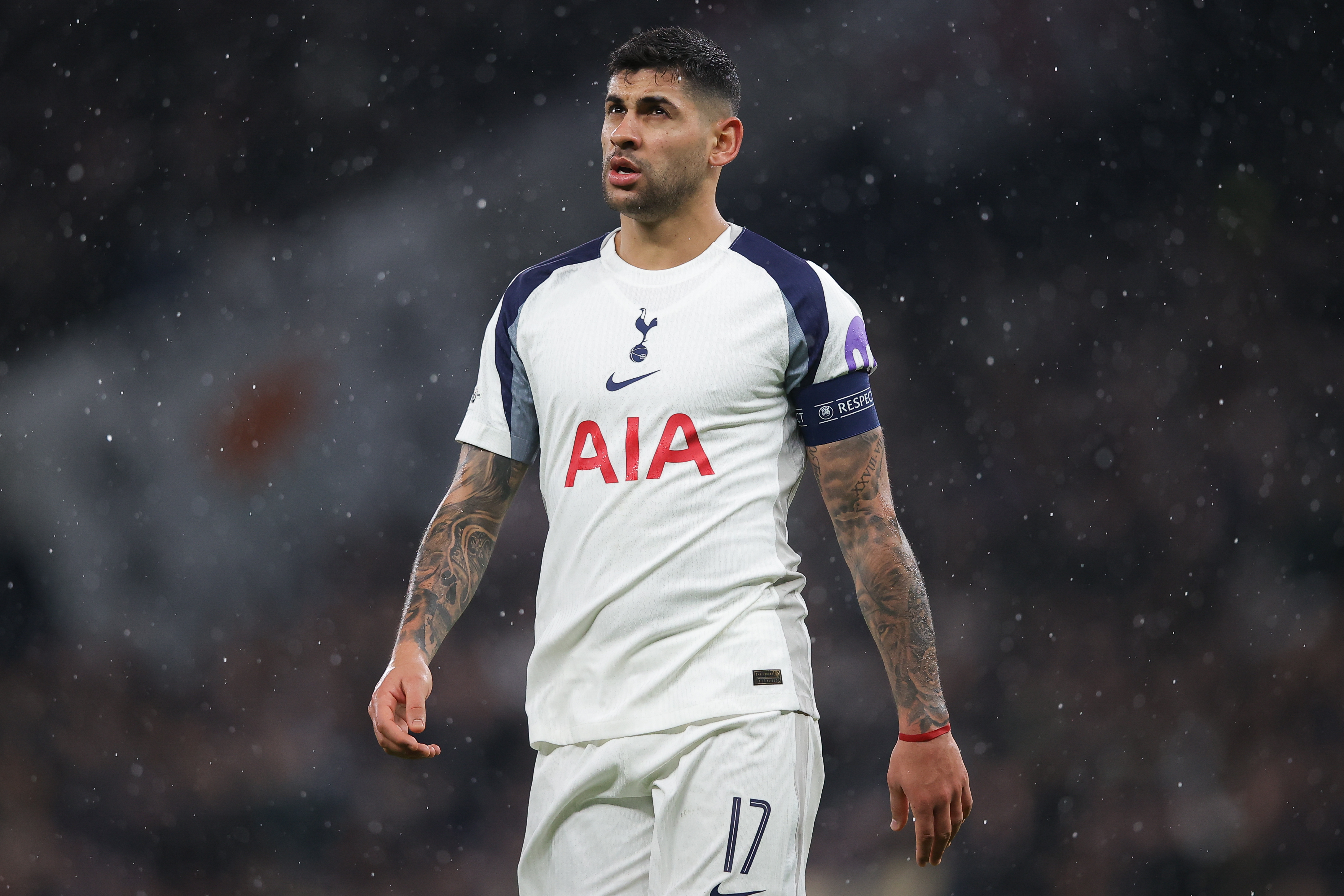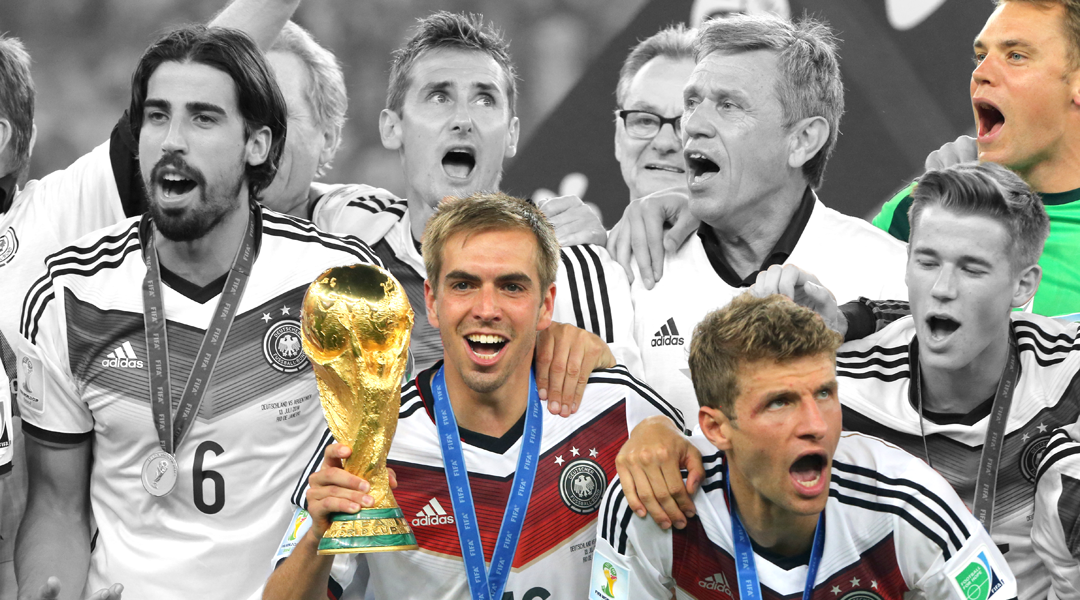
The best features, fun and footballing quizzes, straight to your inbox every week.
You are now subscribed
Your newsletter sign-up was successful
Want to add more newsletters?

Five times a week
FourFourTwo Daily
Fantastic football content straight to your inbox! From the latest transfer news, quizzes, videos, features and interviews with the biggest names in the game, plus lots more.

Once a week
...And it’s LIVE!
Sign up to our FREE live football newsletter, tracking all of the biggest games available to watch on the device of your choice. Never miss a kick-off!
Join the club
Get full access to premium articles, exclusive features and a growing list of member rewards.
The build-up
“We weren't going to Brazil to drink a few Caipirinhas: we were very focused”
Philipp Lahm: It was almost exactly a year before, towards the end of 2013, that I decided to retire from international duty in the summer. I would be 30 years old, and I felt that was a good age. So I knew the World Cup would be my last big tournament and that I would give it everything I’ve got. I didn’t tell anyone connected with the team about my decision. But I guess that some of the players, those who know me very well, had an inkling. It’s not that I ever directly told one of them that I would be stepping down, but I think a few of them could read between the lines.
We wanted to win the World Cup. If that isn’t your aim, why take part?
Manuel Neuer: We wanted to reach the final and win the World Cup. If that isn’t your aim, why take part in the tournament? We’re professional athletes and we’re very ambitious. Telling yourself that all you want to do is reach the quarter-finals is a bit meagre. In the previous tournaments, we had always been among the last four, so we considered ourselves one of the favourites.
Thomas Muller: The general feeling was: we were not going to Brazil to drink a few Caipirinhas, see if maybe we can win a couple of games and then fly back home. We were very focused and hungry for the title.
PL People sometimes ask me if I would have changed my mind [about retiring] if we had gone out early. But everybody who knows me, even if just from the interviews I have given over the years, knows that I’m a realist. I know there’s no guarantee for anything in this game. There have been many great players in this country who finished their careers without having won a title, let alone the World Cup. Having said that, our aim was to stay in the tournament until the very end.
TM We wanted this cup. But at the same time we tried to be relaxed. You have to find the middle ground between being too tense and too loose. Of course a good atmosphere is no guarantee for winning, but it’s a good starting point.
The best features, fun and footballing quizzes, straight to your inbox every week.
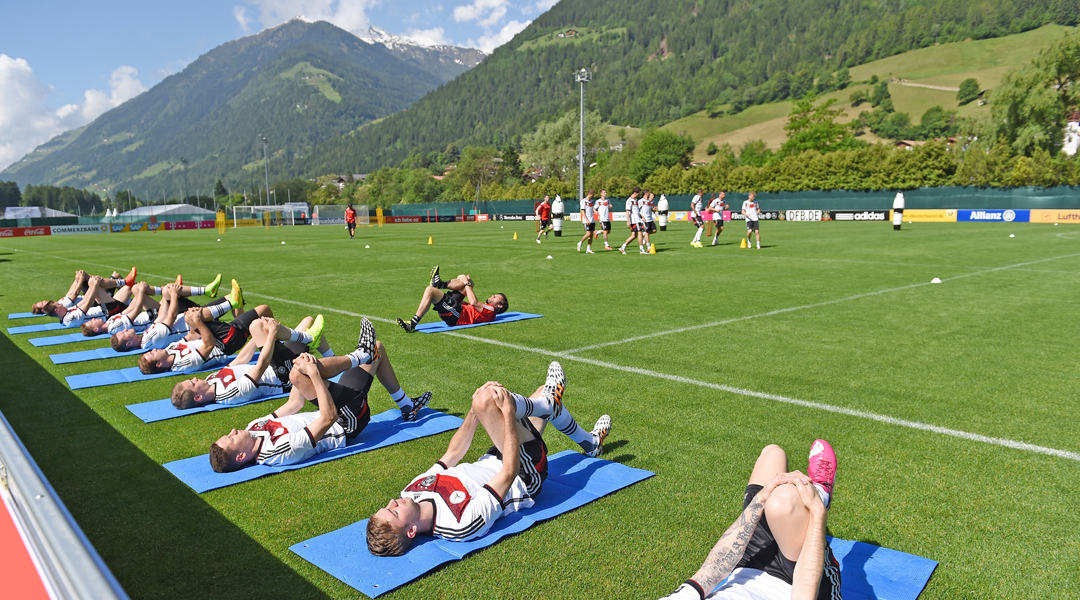
PL We also had the quality, a very strong squad. Funnily enough, we were respected very much abroad and most people outside of Germany considered us joint favourites. It was only in Germany itself that some people said “Oh, they will fall short again” and that the media concentrated on a number of small problems we had. For instance that Basti [Bastian Schweinsteiger] and Manu [Manuel Neuer] were injured or that I was sidelined.
MN Some of the pessimism at home came from the results in the preparation games, which weren’t so good. But to be honest, I wasn’t really worrying about that, because at that point I was more concerned with myself than with anything to do with the team. I was preoccupied with getting in shape in time for the tournament. A month before the World Cup began, I had suffered an injury in the cup final. On the next day, we celebrated winning the double on the Marienplatz in Munich, so we didn’t take MRI scans. It was during this one day that I was slightly anxious. I didn’t really know how badly the shoulder was hurt and so there was a bit of uncertainty. But the scans were made on the next day, and when we knew exactly what the problem was we could plan ahead.
PL None of those injury problems couldn’t be solved or worked around. We knew that all those players who were nurturing injuries or coming back from injuries would regain their fitness in time for, or during, the tournament. So I didn’t worry about any of that. We also didn’t worry about particular opponents at that stage. Of course we knew that it was supposedly statistically impossible for us to win the World Cup, because no European team had ever done that in the Americas.
MN I was very much aware of the set-up of the tournament. I looked at the groups and figured out who we might come up against. I knew that we would probably meet Brazil somewhere down the line.
People had to subordinate their personal interests to the common goal
PL What we concentrated on in the weeks leading up to the tournament was becoming a team. And when I say team, I don’t mean the 23 footballers. I mean everyone working with or for the national team. I think there were about 70 people in Campo Bahia, our camp on the Atlantic coast. All these people had to subordinate their personal interests to the common goal, which was having success. Historically, this togetherness has almost always been a hallmark of German tournament squads.
TM The foundation was laid even before Campo Bahia, during the training camp in South Tyrol. There was a golf course just a hundred yards from the hotel. Golf is one of my hobbies, so I played the odd round with one of our physios. When you’re holed up for more than 10 days in such a camp, you have to make sure the mood doesn’t go sour. So the physio and I made a bet – the loser of the next round had to serve the team at dinner. Dressed in a skirt. We did it for a laugh, as it made the golf more interesting. But it was also at the back of my mind that it’s good for the team and the atmosphere if there’s a bit of action to liven things up. Well, I lost the round.
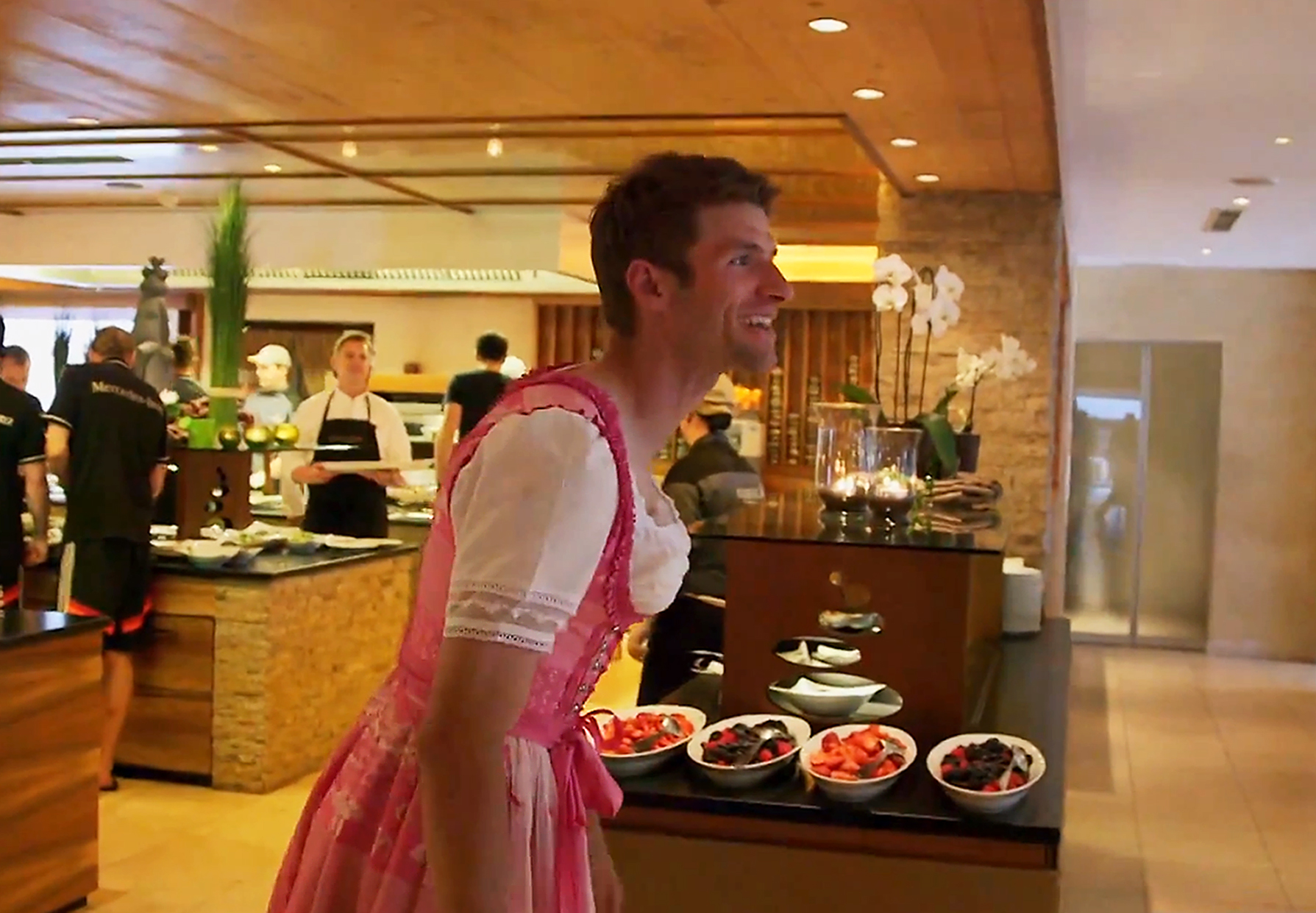
MN Not for nothing do people think of Germany as a tournament team, a side that becomes better from game to game and is somehow suited to the format. I think the reason is that German teams always manage to close the ranks and present themselves as just that, a team. This summer was certainly no exception. There were sides that very much relied on one player – Brazil on Neymar, Portugal on Cristiano Ronaldo. But we were always a team.
The camp in Brazil
“Four years ago, we’d had problems with that Bayern-Dortmund thing. This time was totally different”
PL Campo Bahia was important. We spent a lot of time outside, we were having breakfast or dinner and we were watching football games together out in the open, because it was warm and pleasant. It created a very special atmosphere. Of course there were moments when somebody felt like retreating and went to his room to be on his own for a while, but by and large we were always outside and together. When you went for a walk, you always ran into someone and had a chat with him.
Normally I’m not an early riser. Maybe it was the tropical climate. And the apes...
MN In terms of team-building, it was perfect. I never even went for a walk on my own. I was only ever alone a few times when I woke up very early and then had breakfast before everyone else. Normally I’m not an early riser, maybe it was because of the tropical climate. And the apes, of course. My balcony went out towards an area where sometimes the apes began to run around early in the morning. There was also a bird’s nest that would wake me up.
TM Togetherness is always important in football, but especially during a tournament, because it’s often the little things that make the difference. I don’t know why we always manage to create this team spirit. Maybe it’s because Germans are less hot-headed and more willing to sacrifice their egos for the whole. Or maybe because it’s we don’t have one player who stands out, no Lionel Messi or Cristiano Ronaldo.
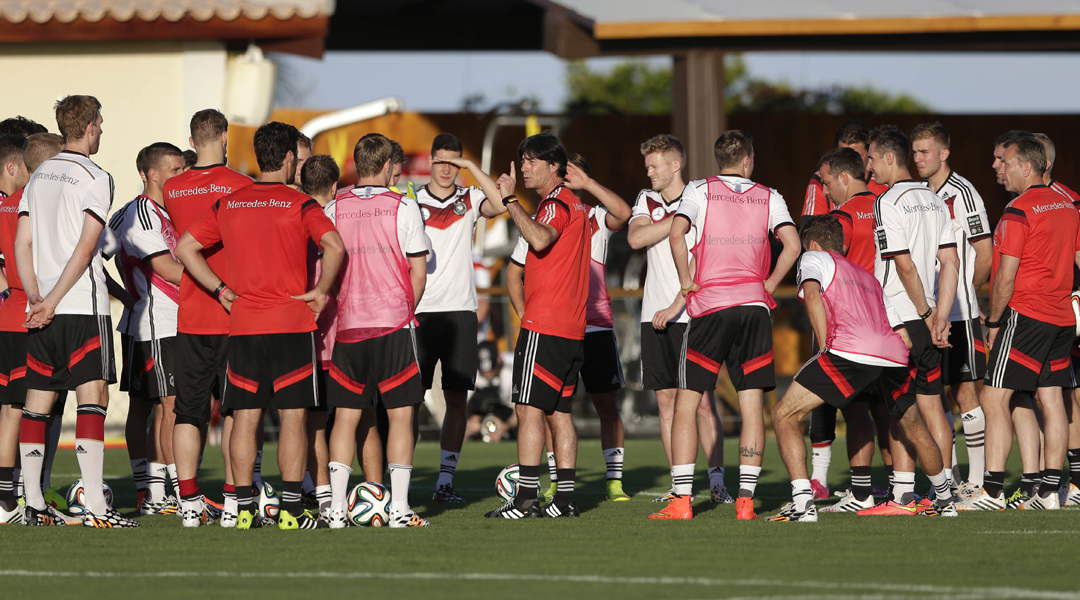
PL We stayed in four villas. Before everybody moved in, four senior players – Basti Schweinsteiger, Miro Klose, Per Mertesacker and me – went into one of the houses, sat down and discussed who should share a place with whom. What we didn’t want to happen was that the Bayern players would stay in one villa, the Dortmund players in another. So instead of, say, keeping a Dortmund player away from a Schalke player, we instead tried to come up with a colourful mix without having to tear good mates apart.
Instead of sitting on the 18th floor watching a movie you already know by heart, it was almost like a rural community
TM Four years ago, we may have had some small problems with that Bayern-Dortmund thing. But it was totally different this time. That’s not to say we wouldn’t have won the World Cup if we had stayed at a different place. At the end of the day, what counts is what happens on the pitch. But it was very nice to stay outdoors with the rest of the team, instead of sitting on the 18th floor of a hotel and watching a movie you already know by heart. It was almost like a rural community.
MN I shared a villa with Bastian Schweinsteiger, who was what we called our house captain, Benedikt Howedes and Julian Draxler from Schalke, Dortmund’s Kevin Grosskreutz and Matze [Matthias] Ginter from Freiburg. With my Schalke background, Kevin was pretty outnumbered. But he got himself some reinforcements, because while we were there it was becoming likely that Matze was about to join Dortmund. We got along just fine. I think it’s very important that you get the chance to talk things over, leave some things that might have happened in the past behind and move forward together.
The group games
“Pepe is a bit of a hot-head and I think he just lost control of the situation and got sent off”
TM I was the designated penalty-taker, I felt good and I like to shoulder responsibility. So when we were awarded the penalty against Portugal, I didn’t hesitate and stepped up. People later said I took it very coolly, but if you had taken some medical tests on me at that moment you would have found an increased pulse rate. But that’s part of the game.
ANALYSIS Muller's positioning masterclass
I was also involved in another crucial moment in the first half, when Pepe was sent off. He hit me in the face and I went down. I didn’t really pay any attention to him, I was still trying to find out if I was bleeding or not, when suddenly he bent towards me. Pepe is a bit of a hot-head and I think he just lost control of the situation. During the game, at half-time, I had a funny feeling because of it. I was hoping I hadn’t done anything theatrical without realising it. I don’t want to be that kind of player. But when I saw the footage later I knew I hadn’t done anything wrong.
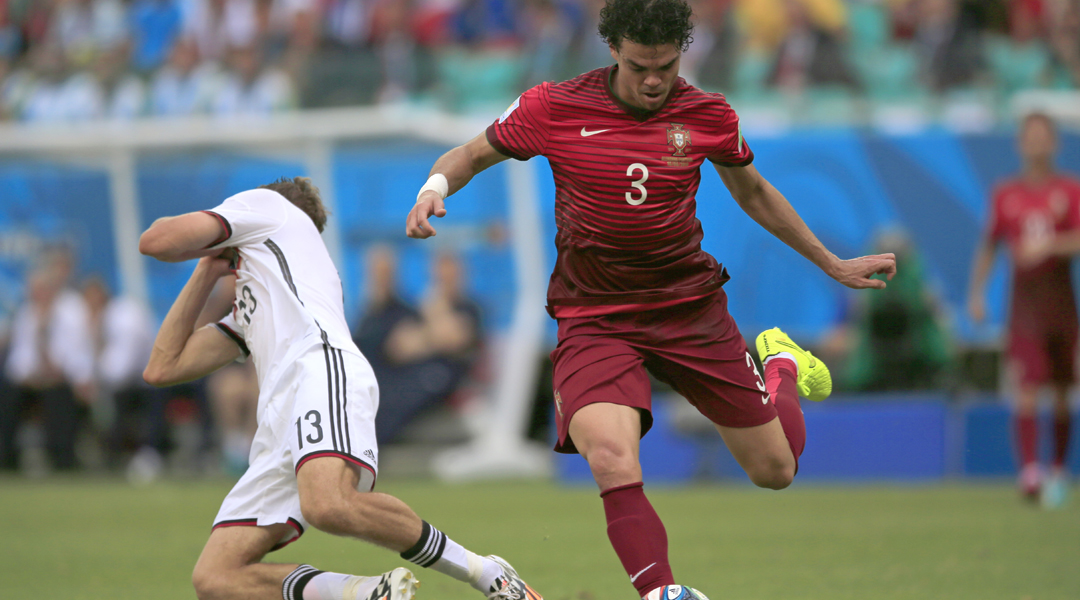
MN You never know where you stand, so the first game is often the most important one. We got a good result, although we didn’t play a perfect game. Still, just as in the following games, we were the better team and that’s what was important.
TM I’ve read that the Ghana game was good for us because we came back after the opponent turned the game around. But games that have been played have no real bearing on games that will be played. We’ve all had games during our careers in which we managed to erase a deficit. And we’ve all had games where we didn’t. We already had all the experiences you can have, so it’s not as if we woke up as different people the next morning. Well, OK – I did. I suffered a facial cut during the game and my eye was swollen up with blood the next day. But I was fine for the USA game.
ANALYSIS Harrison Afful impresses against Germany from right-back
How would you collude to draw? With such a big crowd, can you imagine the boos and catcalls? That would be unbearable
We realised there was some talk ahead of the USA match about the fact that a draw would have seen us both through. But we never said we had to win this so there wouldn’t be any suspicion. You can’t let such rubbish influence you. I mean, how would you collude to draw? To make it work, one team would have to be passing the ball around while the other watches passively. I mean, that would be unbearable, wouldn’t it? With such a big crowd, can you imagine the boos and catcalls? We knew it’d happened in the past [the 1982 'Disgrace of Gijon' which saw West Germany and Austria through at Algeria's expense], but those were different times.
ANALYSIS US midfield overrun
The knockouts
“I told the German reporters that I felt the coverage was too critical”
TM I always had a good feeling during the Algeria game. Of course we didn’t play well in the first half, but I always felt that no matter what happened, we would be able to react [Germany won 2-1 after extra-time]. I thought that even if a problem should arise we would find another 5% to give.
MN Against Algeria, we had the better chances. Though you have to say that I had to come to the rescue a few times outside the box. These would have been one-on-one situations and very good opportunities for the opposition. That, however, is part of how we play. I just did my job. But of course I realised how much coverage these saves were getting back home. I got many emails and text messages from mates who were sharing funny stuff they found on the web.
ANALYSIS Algeria go long; Germany successfully repels
When we’re convinced something could work, we give it a try and don’t worry about what the public reaction might be
TM I think I was the one who came up with the idea for the free-kick routine where I stumble. I thought it might cause confusion. We practised that a few times during training and when we won a free-kick in the game, I talked with Toni Kroos. We didn’t feel we had a player in our side who would score nine out of 10 times with a direct shot from this position, so we decided to try the trick. Neither of us is the type of player who would shy away from doing something like this just because it’s the 88th minute of a World Cup game. When we’re convinced something could work, we give it a try and don’t worry about what the public reaction might be if the execution isn’t perfect.
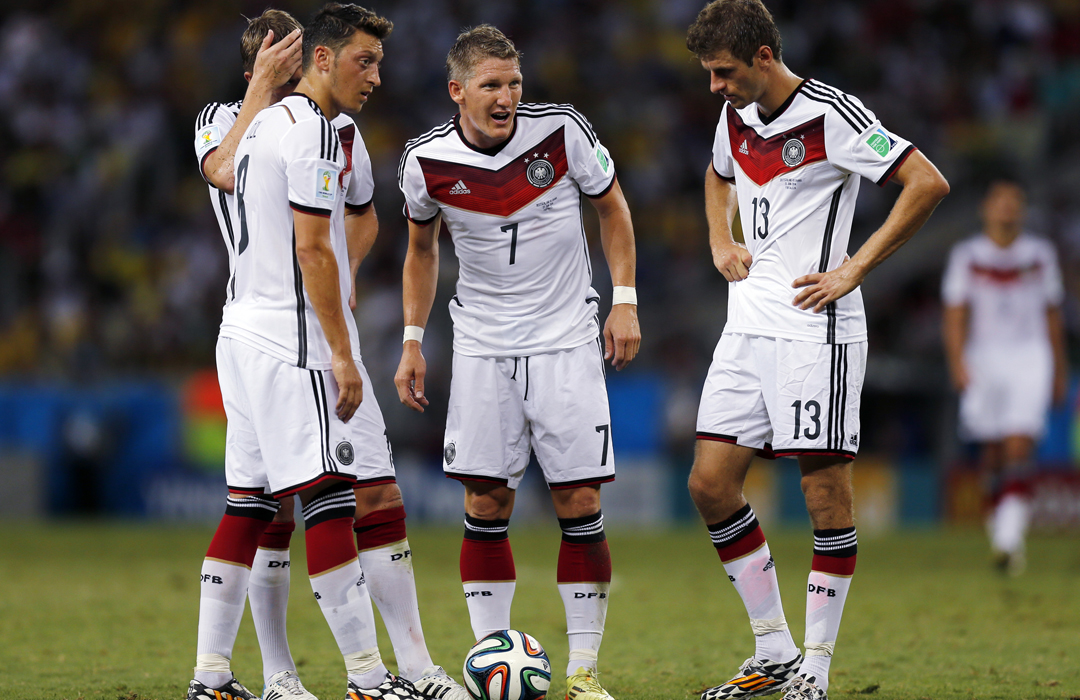
PL We weren’t isolated in the camp, we watched German television and of course there was also the internet. So we were aware that there was a discussion back in Germany about whether I should play in midfield or at full-back. There had been reasons why I started in midfield. Sami Khedira and Basti had both come back from injuries and didn’t have a lot of match practice. But we had always said we would decide upon my position from game to game and this is what happened.
TM After the Algeria game, I held a small press conference with about 20 German reporters. I told them that I felt the coverage was too critical. We all knew that the game hadn’t been brilliant. What I didn’t like was that there was this negative mood which didn’t help the team. You felt that not everyone was totally behind the team although they said they wanted us to win the title. I told them the coverage was not helpful.
It wasn’t as if Jogi Low suddenly pencilled me in at right-back and I was nonplussed
PL The national coach and I had been sharing our views all the time and of course we also did so after the Algeria game. So it wasn’t as if he suddenly pencilled me in at right-back and I was nonplussed. People say that we played better after the Algeria game, but I’m not sure about this. Yes, the Algeria match was close, because it went to extra-time. But against France we also had some moments where we didn’t look so good defensively. It was a good game against a good opponent, but it wasn’t totally convincing. Of course, the one after that was absolutely outstanding.
ANALYSIS France create more but Germany progress
The semi-final
"We didn’t feel sad for the Brazilians, we still treated them with respect"
MN We had seen Brazil’s games, not least because the people working at our camp were closely following their team and really enthusiastic about the matches. They were all distressed when Neymar was injured and missed the semi-final. Ultimately, the team couldn’t offset this loss.
PL I felt it was a pity, because you want to play against the best. So it was sad to see such a great player being sidelined. Actually, we didn’t see that game, because we were flying back to our camp after our own quarter-final while Brazil were playing. So we only later learned what had happened.
The semi-final was very strange, almost shocking. We were all aware that the Brazilian fans were at the end of their tether
MN The semi-final was very strange. This was supposed to be one of those games where there’s enormous pressure on you and the whole ground is against you. But then suddenly everything goes swimmingly, every shot goes in and you have a commanding lead. It was almost shocking. I didn’t consciously look around to see what was happening in the stands, because I tried to stay focused, but I think we were all aware that the Brazilian fans were at the end of their tether. They couldn’t believe what was happening.
ANALYSIS Defensive errors blight Brazil
TM Before the game, [assistant coach] Hansi Flick suggested we should try a corner routine. I’m at the near post and then drop back, while Miroslav Klose moves from the far post to the near post. We tried it in the game and it worked. Our markers followed us and because we were moving in opposite directions, they impeded each other. For the viewer it probably seemed as if nobody at all was marking me. But whenever something like this happens at a corner, you can be sure there’s a reason for it and that somebody’s path was blocked. That was the opening goal.
PL It was one of those days where everything we tried worked, and everything they tried didn’t. I have been asked if it was a win that was tinged with sadness. I think what people mean is that the Brazilian fans and players were so utterly dejected because it was such a demoralising scoreline. But no, it was a super win for us. Just a few months earlier, we had thrown away a four-goal lead against Sweden, so we didn’t let up this time. We didn’t feel sad for the Brazilians, we still treated them with respect. Though you could sense on the pitch how they came apart after the third goal.
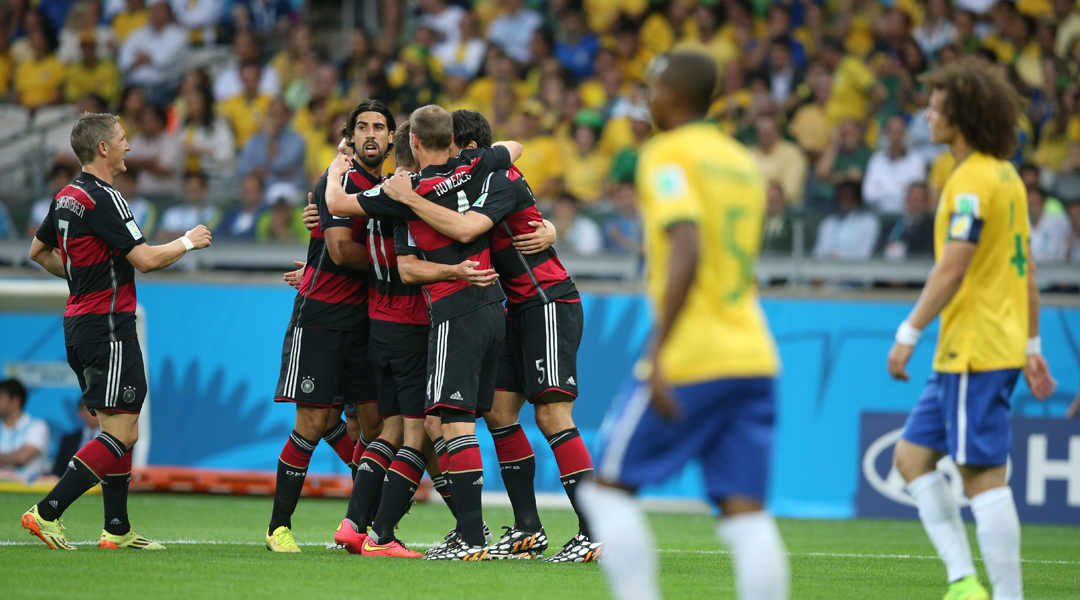
TM After the second goal, they lost their heads. You can understand why, there were the expectations and the crowd. But they blindly rushed forward and if you give a team likes ours so much space then, well, it’s going to be tough.
MN The people at home could see how demoralised the Brazilians were, because the cameras zoomed in and showed the players’ reactions in slow-motion replay. I didn’t see much of this, because I was so far away. But their body language told you they were finished. During the half-time break we said we shouldn’t become defensive now. We wanted to keep a clean sheet and not change our game.
We said at half-time that we owed the host nation respect and shouldn't start showboating
PL We sat down and said we must not lose focus. We also said that we owed our opponents, the people in the stands and the host nation a lot of respect and should not start showboating. We felt the best way of treating Brazil with respect was not changing our approach.
MN When we got back to our camp, the Brazilian employees were unhappy about the result. But at the same time they were happy for us. The one thing that counted for them was that Argentina must not win the World Cup.
The final
“My immediate thought after we scored was that we have to defend this lead”
PL Despite the historic Brazil game, we would have been very disappointed if we had lost the final. We had told ourselves before the tournament that we didn’t want to finish second or third again, we wanted to win the trophy. I’m sure every fan felt the same way. After all those tournaments where we did well but came away empty-handed, the only thing that counted was winning the final.
If we had fallen behind, it would have become really tough, because Argentina know how to shut up shop
MN The final was the closest game we played in the tournament and it could have gone the other way. There was that situation in the first half, where we allowed [Gonzalo] Higuain to be clear through to goal and he put the ball wide. That was a clear-cut scoring opportunity. If we had fallen behind, it would have become really tough, because Argentina know how to shut up shop.
TM I didn’t really see the situation in which Christoph Kramer was knocked out. If I had, I might have been able to understand his behaviour better, because when you watch the footage you can see that it was quite a bang. So when he came over and said that he couldn’t see properly or that he didn’t know where he was, I just told him to leave the pitch and get treatment. But he kept running around like a wind-up toy for another five minutes or so.
ANALYSIS Germany dominate possession and win
PL I didn’t realise the extent of his injury, though of course you could see that something was wrong with him. At one point, Thomas [Muller] came over to me, pointed at him and said: “That’s it, he can’t go on.”
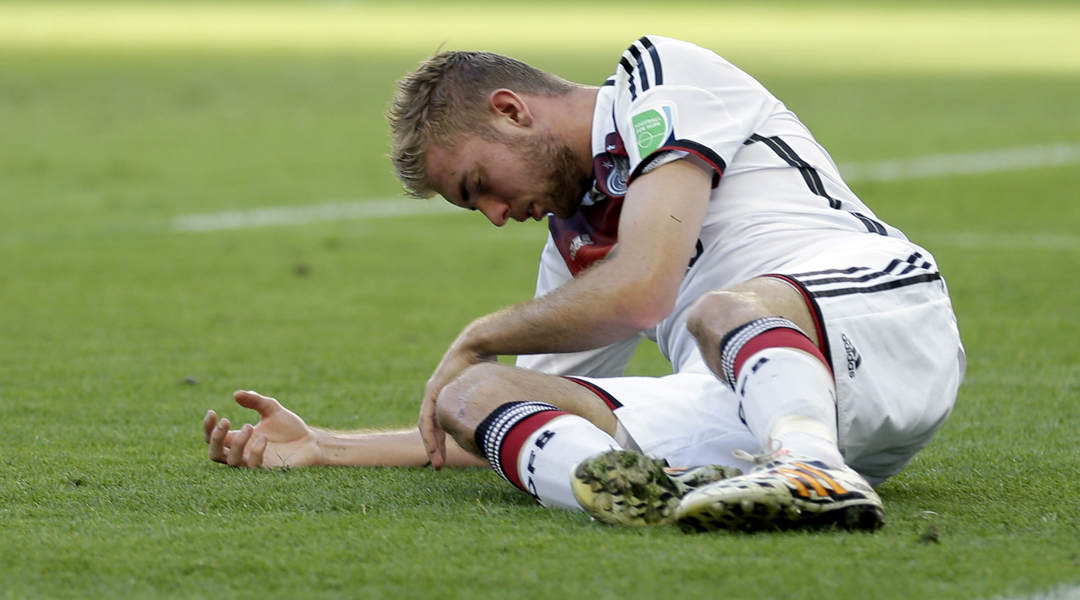
MN The goal came as a big relief, though I immediately told myself I had to stay focused until the final whistle. Still, it was a phenomenal moment. You couldn’t say I saw the goal coming, although it was a counter attack, which is always dangerous for the opponent. The cross was great, but Mario [Gotze] didn’t have a good angle for his shot. But he executed it perfectly.
TM I don’t even know where I was when the ball went in. I must have been nearby, but I really can’t remember how I saw it.
PL In a game like this, you hope for a goal at every attack. But when it came it happened so fast that the ball was in the back of the net before I had time to realise this was a good chance. I felt enormous relief when the ball went in, but I didn’t think that the game was decided. I immediately told myself that we now had to defend this lead. And that’s why the most amazing moment of the entire World Cup was not the goal but the final whistle.
Back home
“We passed a prison and all the inmates were waving at us”
PL Everything about the celebrations was incredible. You cannot believe the number of people that lined the streets. But perhaps the most memorable moment for me was when the plane landed and just before the doors opened. I was the captain, so I was holding the World Cup in my hands, waiting to step off the plane. I don’t know why, but I was very moved, knowing that I was now literally bringing the World Cup back to Germany.
MN I can’t recall a quiet moment, because there was this constant party atmosphere in the camp and on the plane. Then we got to Berlin and it was gigantic to see all the people.
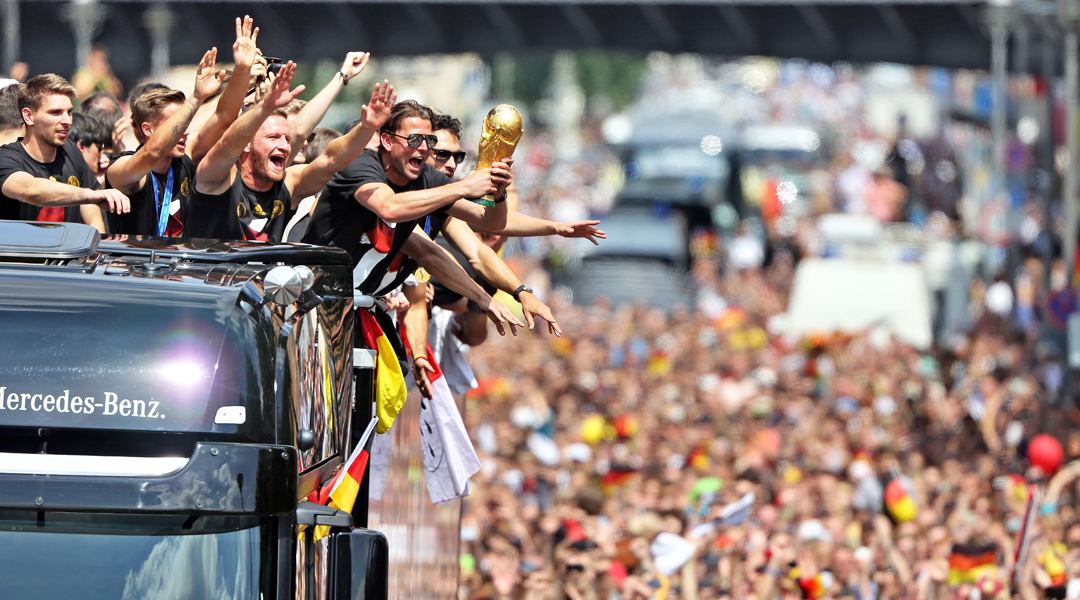
TM Our bus passed a construction site and everybody stopped working to cheer us. Then we passed a prison and all the inmates were waving at us. These moments stay with you.
MN I think that apart from the occasional trip to the toilet I was never alone and never had any time to think about what had happened until much later, when I was on holiday.
PL I haven’t had any dreams about the World Cup since. In mid-November, we all attended the premiere of the tournament film in Berlin, and that’s when the memories and the pictures came back. But I hardly ever dream about football. Though of course you could say that the whole thing was like a dream. When I started my Germany career, 10 years ago, nobody could’ve predicted this would happen.
TM Me, I don’t dream much anyway.
Originally published in the January 2015 issue of FourFourTwo. Subscribe!
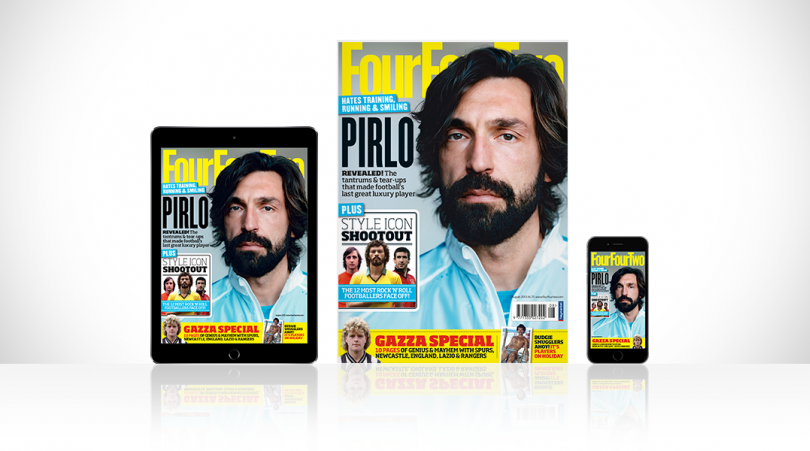
 Join The Club
Join The Club










